Introduction to Logic Gates
Logic gates are crucial components in digital electronics, forming the building blocks for digital systems. These components perform specific logical operations on one or more binary inputs to produce a binary output. Essentially, logic gates are the electronic circuits that execute Boolean functions, fundamental in processing digital data.
Core Types of Basic Logic Gates and Their Extensions
Logic gates are categorized based on the operations they perform and their influence on input signals. The primary gates include:
- OR Gate: Outputs a high (1) if any of its inputs are high.
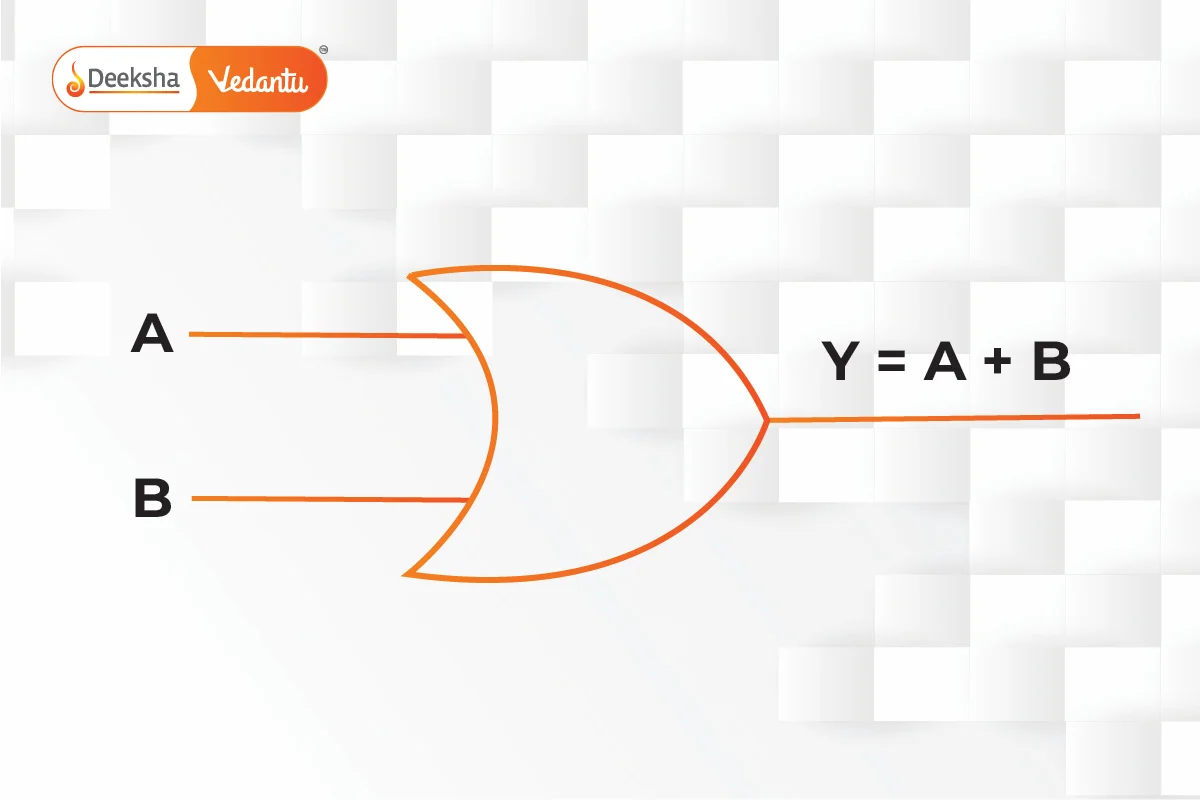
- The truth table of a two-input OR basic gate is given as:
| A | B | Y |
|---|---|---|
| 0 | 0 | 0 |
| 0 | 1 | 1 |
| 1 | 0 | 1 |
| 1 | 1 | 1 |
- AND Gate: Outputs a high only if all its inputs are high.
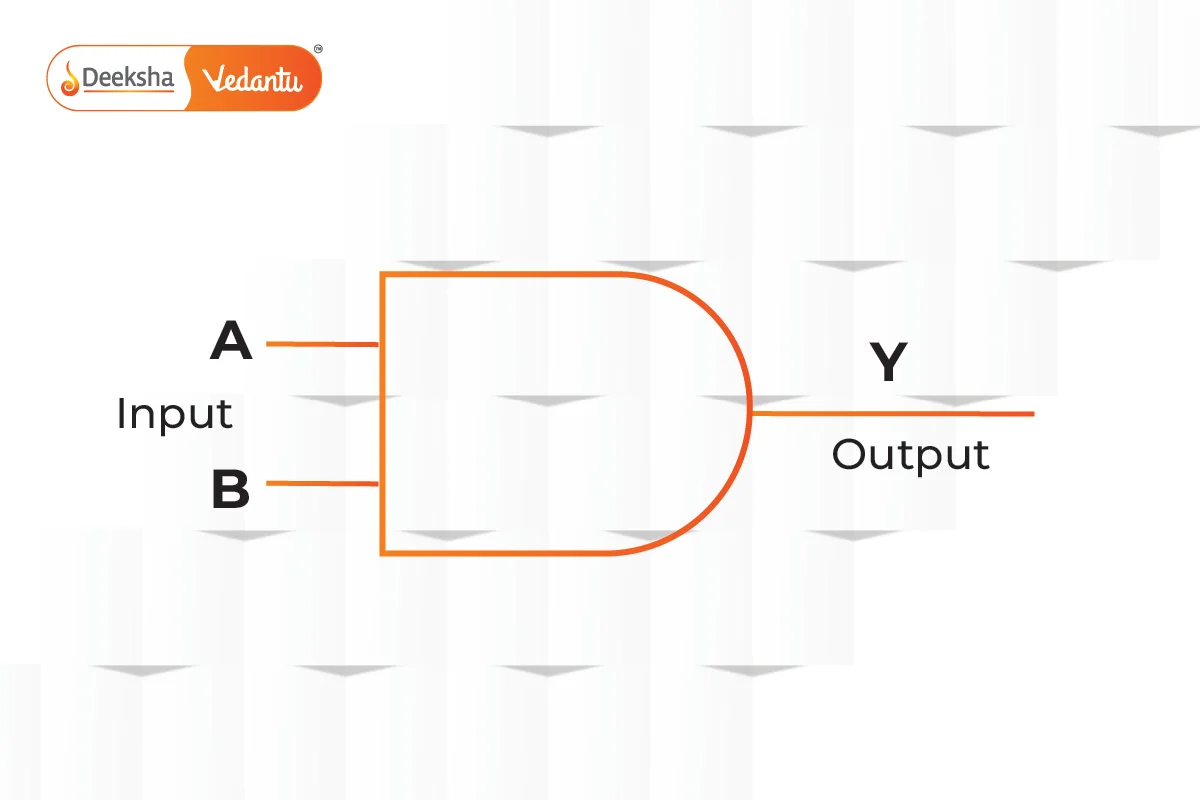
- The truth table of a two-input AND basic gate is given as:
| A | B | Y |
|---|---|---|
| 0 | 0 | 0 |
| 0 | 1 | 0 |
| 1 | 0 | 0 |
| 1 | 1 | 1 |
- NOT Gate: Inverts the input, producing a high output when the input is low, and vice versa.
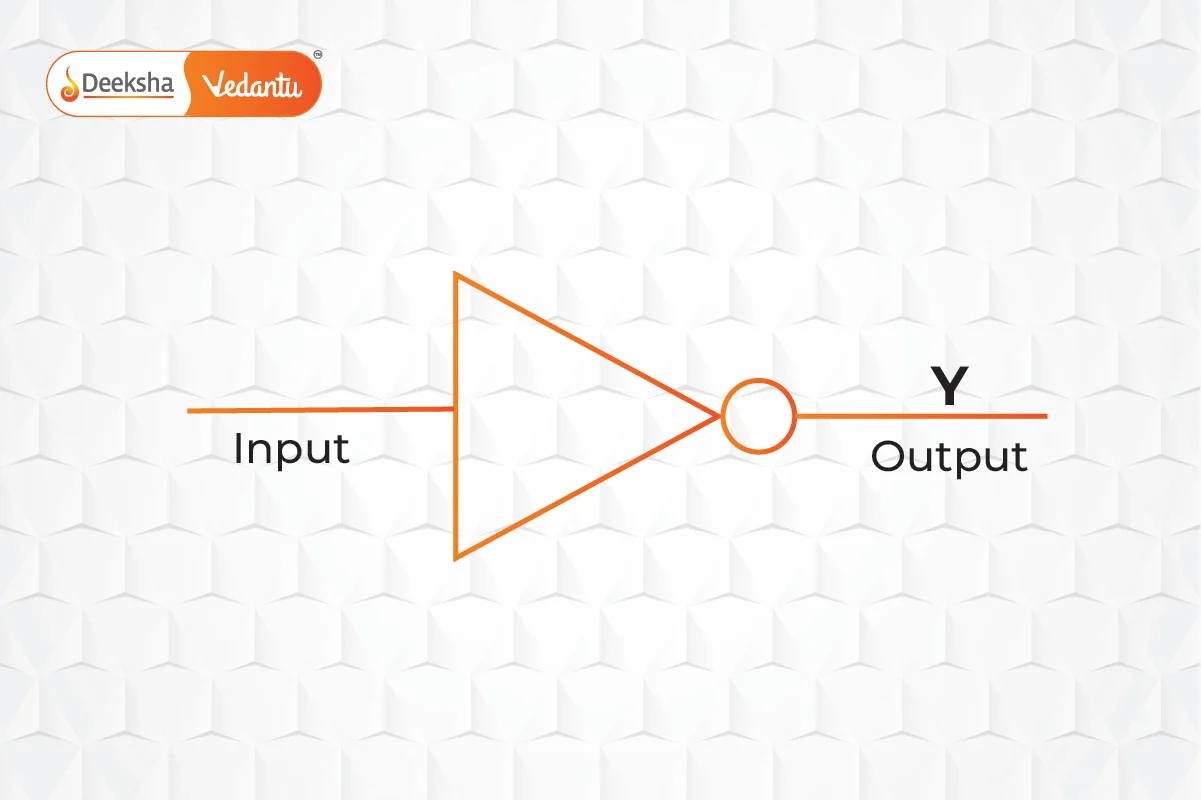
- The truth table of NOT gate is given as:
| A | Y |
|---|---|
| 0 | 1 |
| 1 | 0 |
- XOR Gate: Outputs a high only if the inputs are different. These basic gates are foundational, but other gates derived from these offer more complex functionalities:
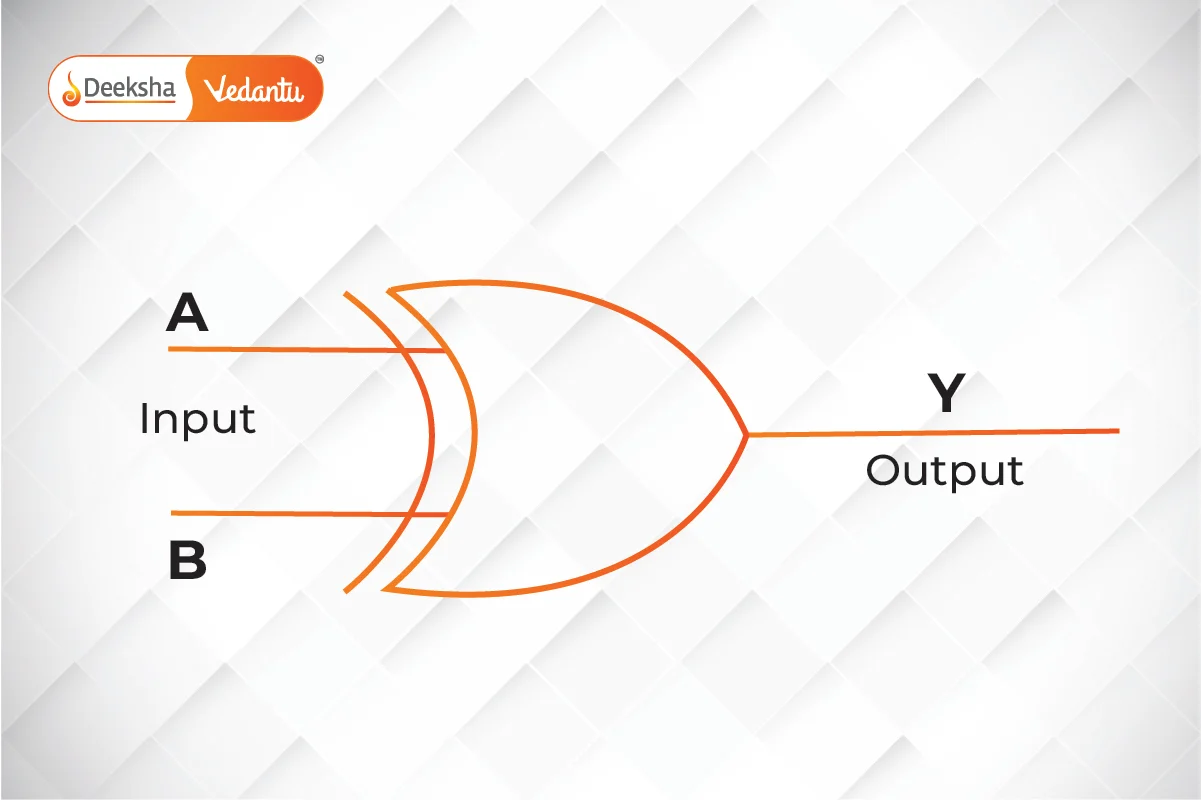
- The truth table of XOR gate is given as:
| A | B | Y |
|---|---|---|
| 0 | 0 | 0 |
| 0 | 1 | 1 |
| 1 | 0 | 1 |
| 1 | 1 | 0 |
- NAND Gate: A combination of an AND gate followed by a NOT gate, outputting a low only when all inputs are high.
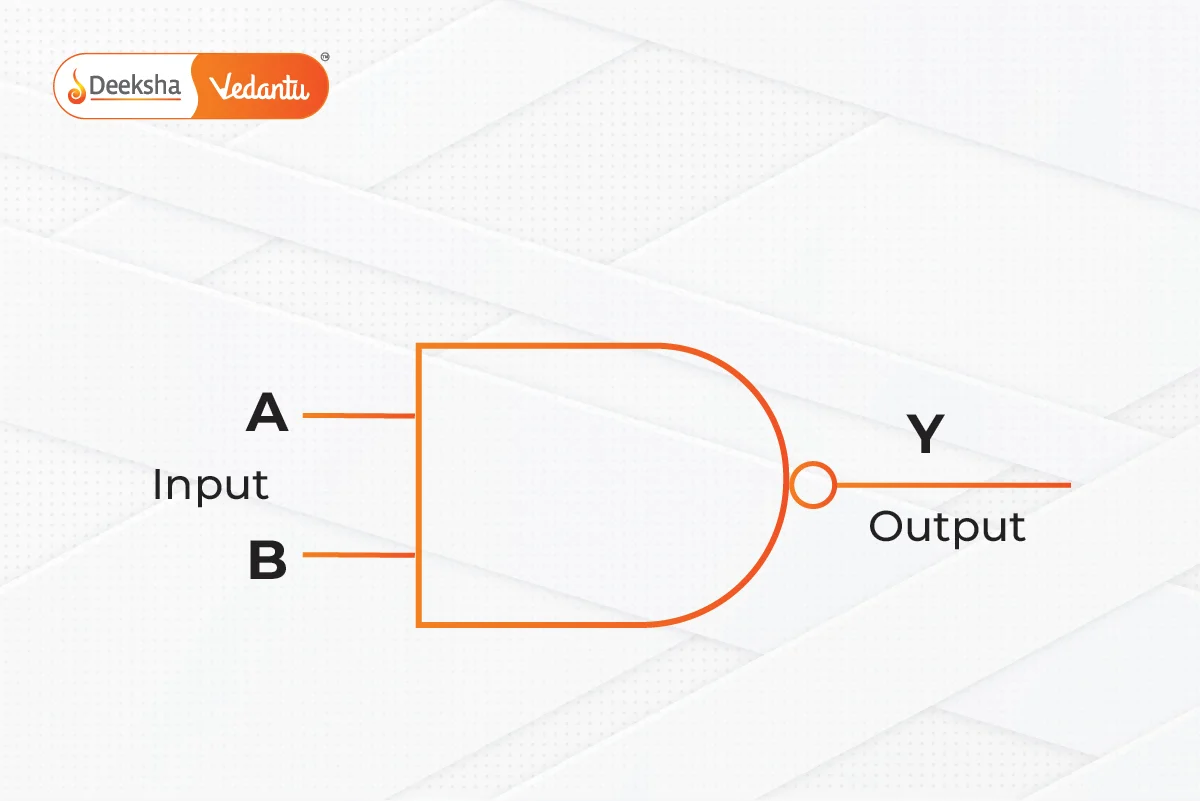
- The truth table of NAND gate is given as:
| A | B | Y |
|---|---|---|
| 0 | 0 | 1 |
| 0 | 1 | 1 |
| 1 | 0 | 1 |
| 1 | 1 | 0 |
- NOR Gate: A combination of an OR gate followed by a NOT gate, outputting a high only when all inputs are low.
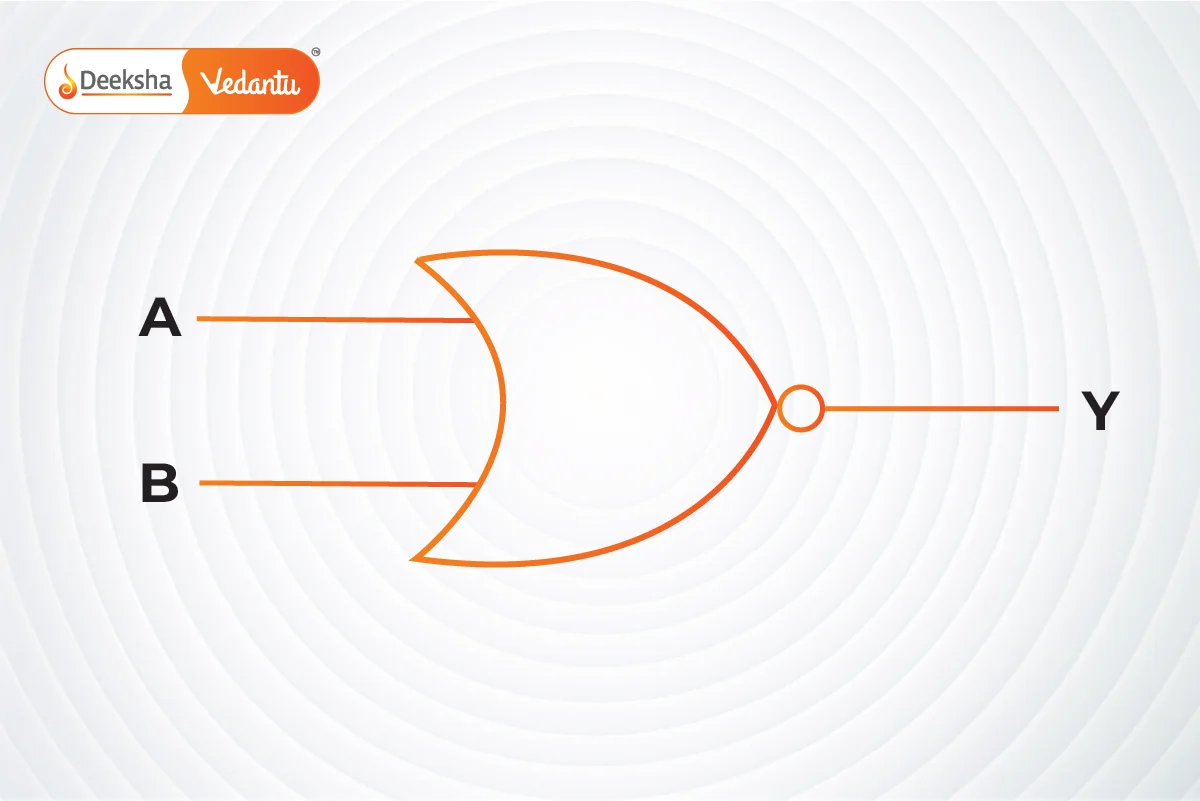
- The truth table of NOR gate is given as:
| A | B | Y |
|---|---|---|
| 0 | 0 | 1 |
| 0 | 1 | 0 |
| 1 | 0 | 0 |
| 1 | 1 | 0 |
- XNOR Gate: Essentially an XOR gate followed by a NOT gate, outputting a high when the inputs are identical.
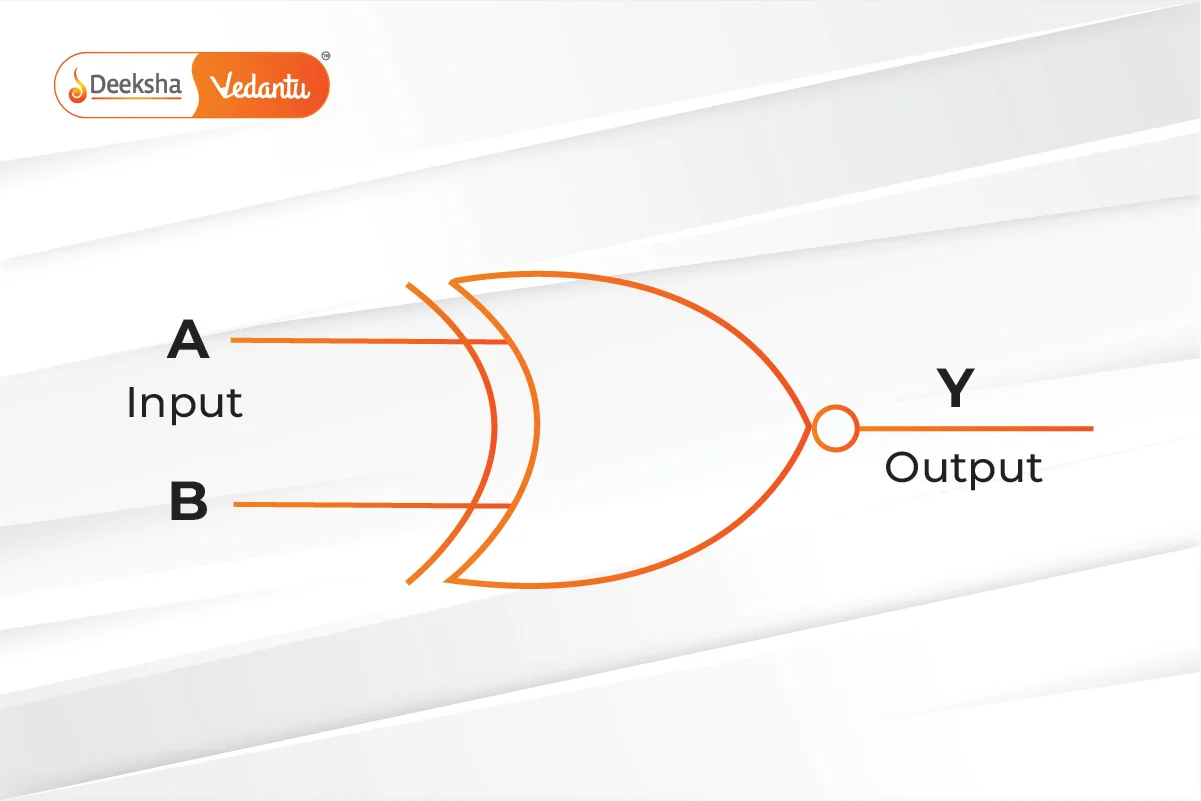
- The truth table of XNOR gate is given as:
| A | B | Y |
|---|---|---|
| 0 | 0 | 1 |
| 0 | 1 | 0 |
| 1 | 0 | 0 |
| 1 | 1 | 1 |
Detailed Functionality and Applications of Each Gate
- OR Gate: Utilized in systems where any of several conditions can trigger an action. For example, in alarm systems, an alert is triggered if any one of the sensors is activated.
- AND Gate: Essential in control systems where multiple conditions need to be met before an action is initiated, such as in automated industrial processes where several safety conditions must be satisfied before machinery is activated.
- NOT Gate: Used to reverse signal states, pivotal in circuits where the opposite state needs to be triggered based on the existing condition.
- XOR Gate: Common in digital adders used in calculators and computers where binary addition requires the sum bit to reflect differing input bits.
The extended gates like NAND and NOR are termed “universal gates” due to their ability to create any type of gate function, which is fundamental in the synthesis and optimization of digital circuits.
Theoretical Underpinnings and Practical Implementations
- De Morgan’s Theorems provide essential strategies for simplifying complex logical expressions. They demonstrate how a network of NAND or NOR gates can replicate the functions of all other gates, which is particularly useful in minimizing the components in integrated circuits.
- Gate Conversions:
- NAND and NOR gates are transformed to perform as AND and OR gates with inverted outputs, allowing flexibility in circuit design.
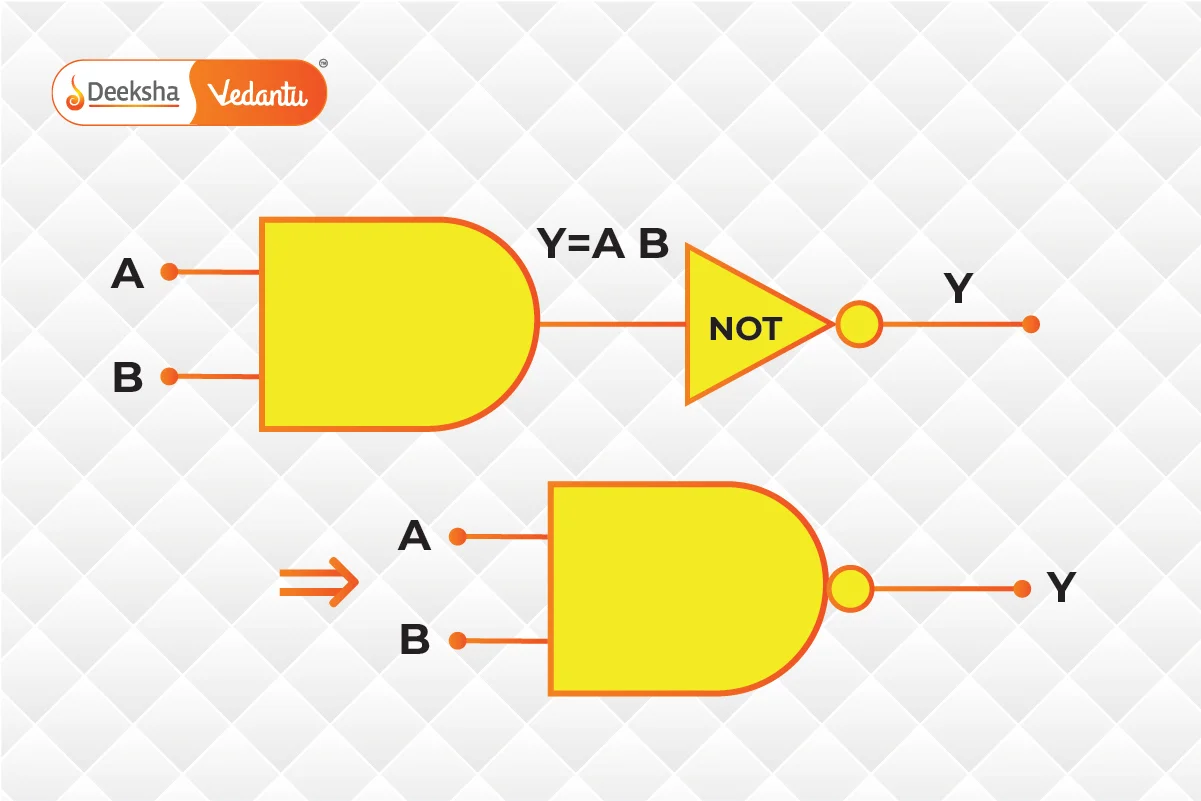
Boolean Expression:
- AND Gate:
- NAND Gate:
Truth Table:
| A | B | ||
|---|---|---|---|
| 0 | 0 | 0 | 1 |
| 0 | 1 | 0 | 1 |
| 1 | 0 | 0 | 1 |
| 1 | 1 | 1 | 0 |
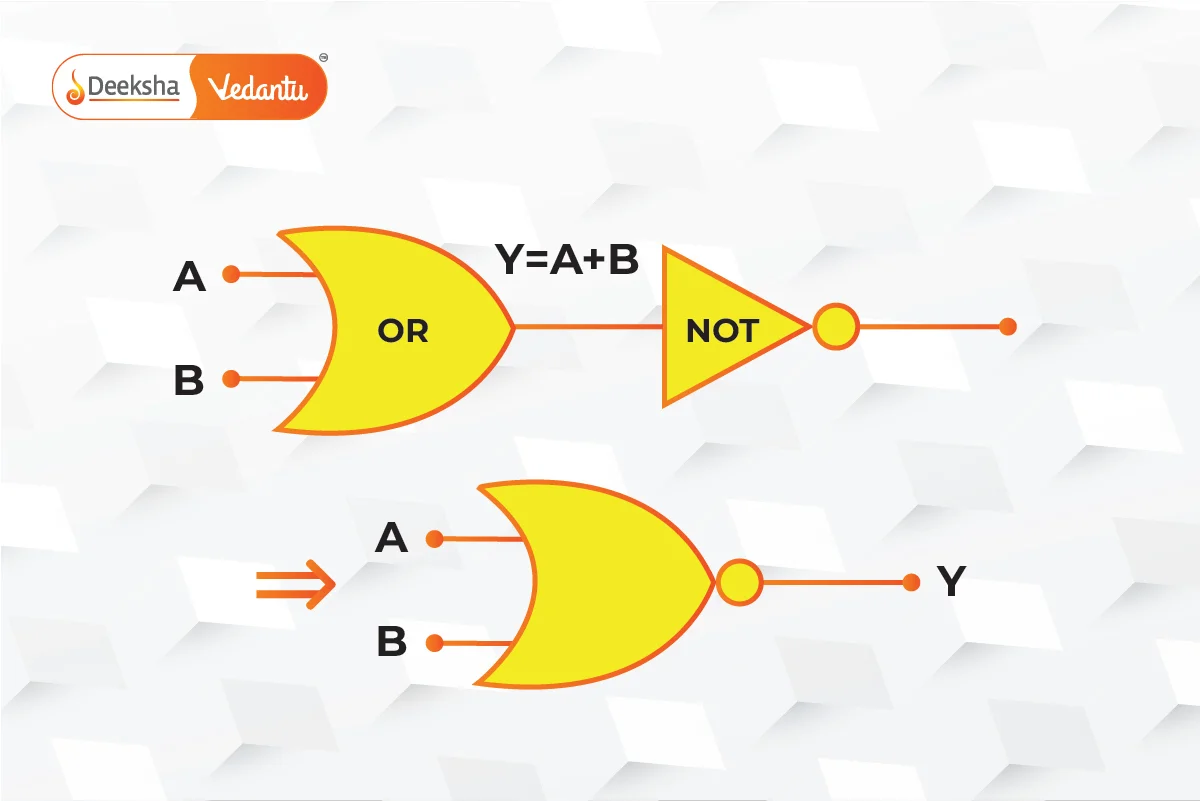
Boolean Expression:
- OR Gate:
- NOR Gate:
Truth Table:
| A | B | ||
|---|---|---|---|
| 0 | 0 | 0 | 1 |
| 0 | 1 | 1 | 0 |
| 1 | 0 | 1 | 0 |
| 1 | 1 | 1 | 0 |
- XOR and XNOR gates are used for comparison operations, essential in digital communication for error checking and correction.
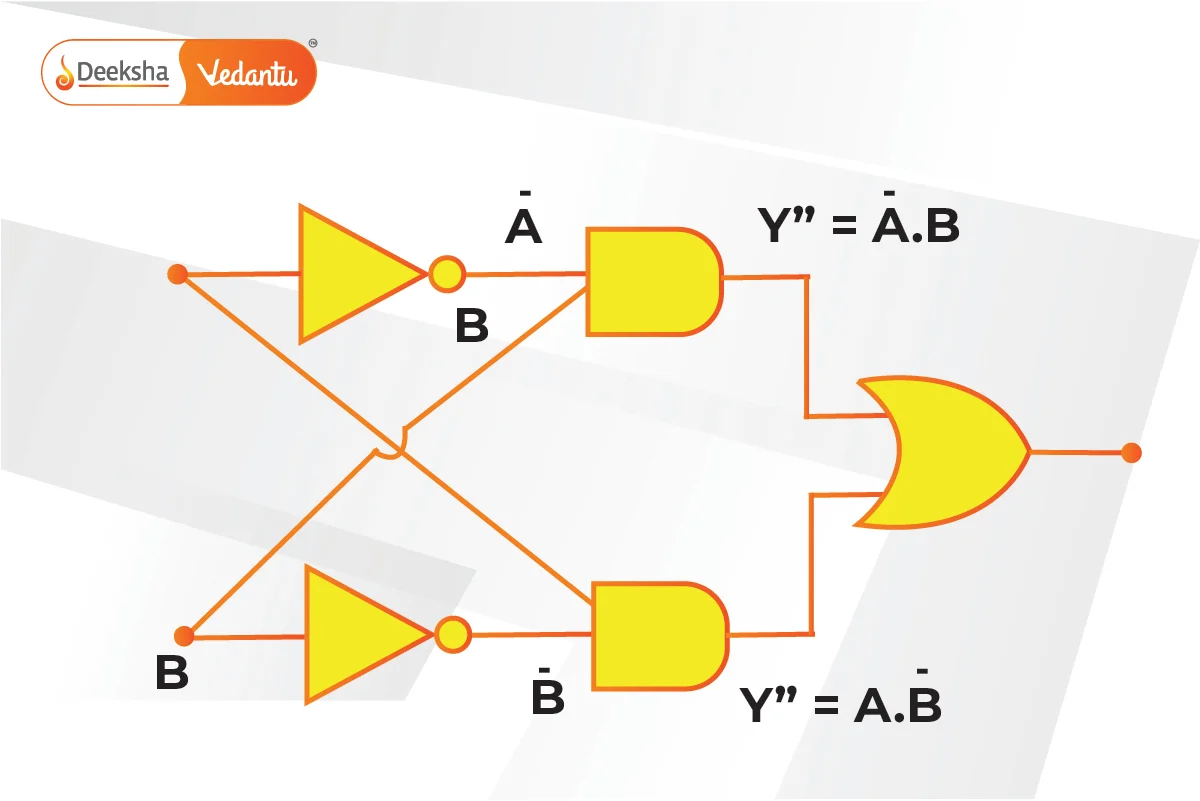
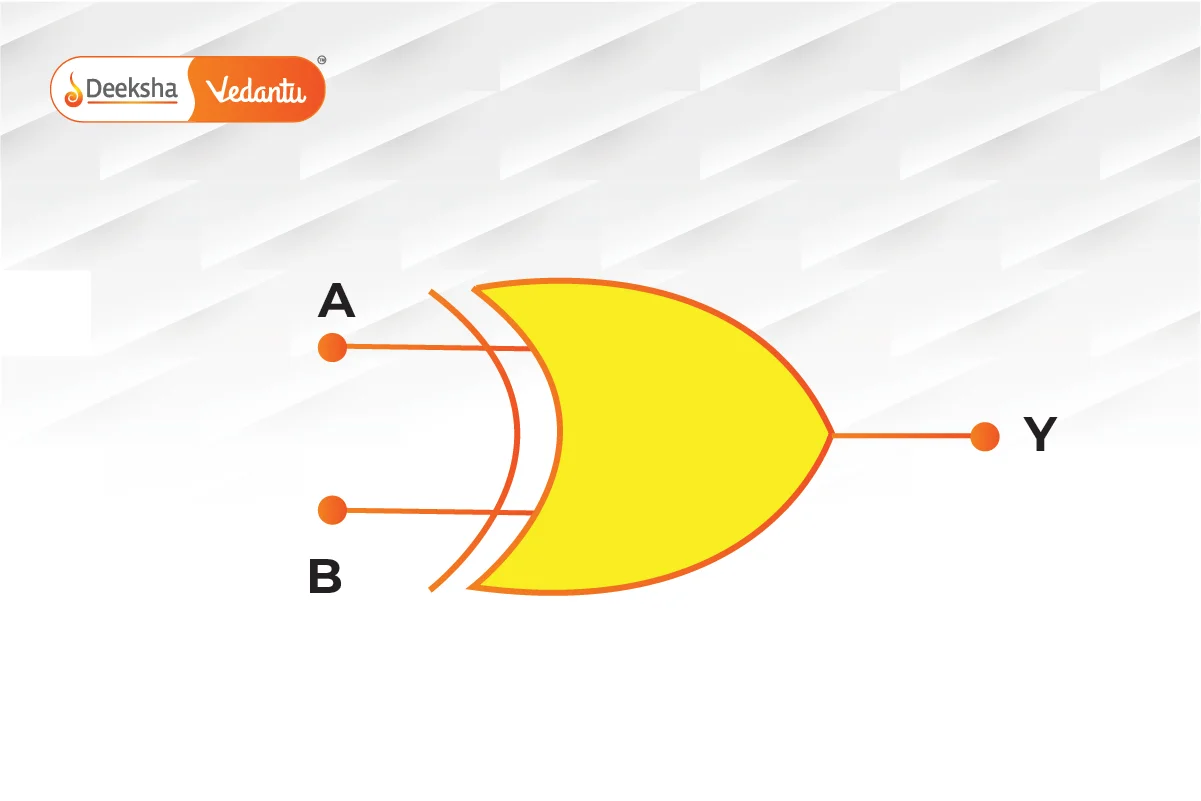
Boolean Expression:
- Or equivalently,
(XOR operation)
Truth Table:
| A | B | Y |
|---|---|---|
| 0 | 0 | 0 |
| 0 | 1 | 1 |
| 1 | 0 | 1 |
| 1 | 1 | 0 |
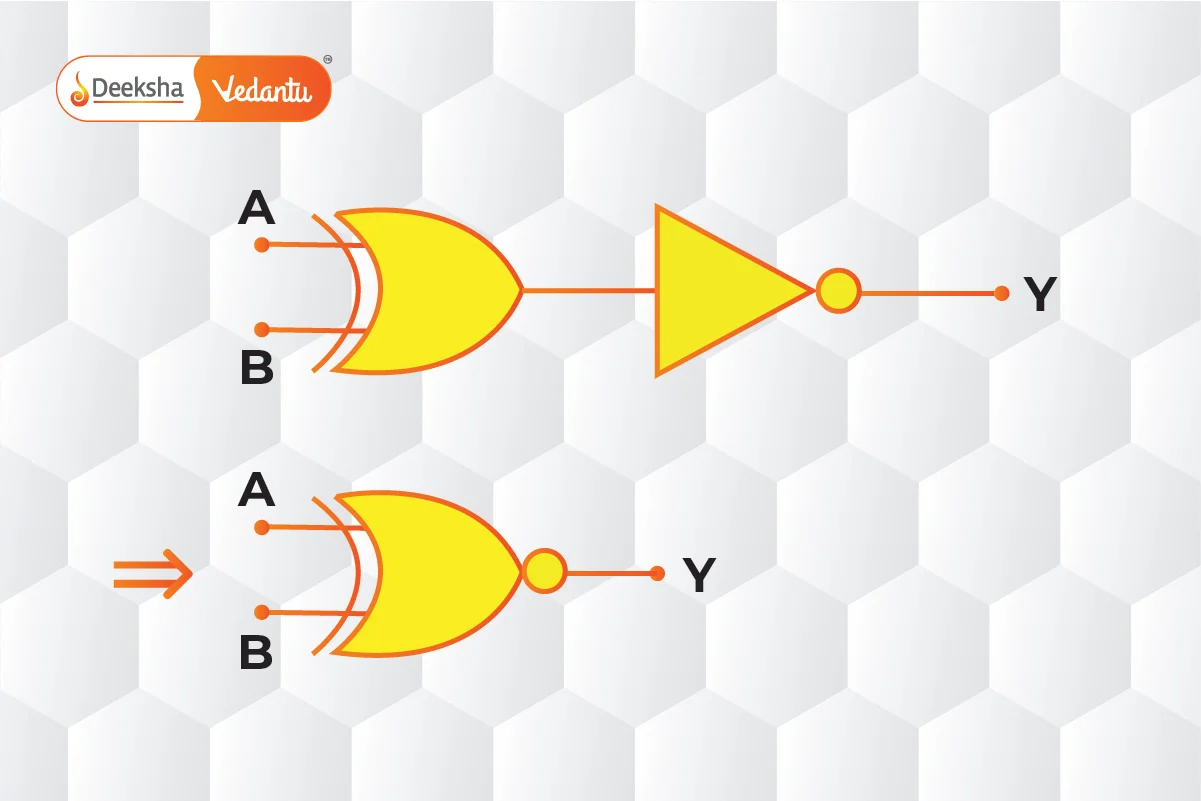
Boolean Expression:
- Or equivalently
(XNOR operation)
Truth Table:
| A | B | Output |
|---|---|---|
| 0 | 0 | 1 |
| 0 | 1 | 0 |
| 1 | 0 | 0 |
| 1 | 1 | 1 |
Real-World Applications of Logic Gates
Logic gates are ubiquitous in modern electronic applications. They are found in:
- Computing systems: Where they form the fundamental elements of processors.
- Consumer electronics: In devices like calculators and mobile phones.
- Industrial systems: For process control and automation.
- Communication systems: For encoding, decoding, and error correction.
Each gate type can be utilized in various configurations to execute complex operations, demonstrating the adaptability and importance of understanding logic gates for anyone involved in electronics or computer engineering.
Conclusion
Understanding basic logic gates and their complex combinations is crucial for designing efficient digital circuits. These components not only facilitate fundamental data processing tasks but also support the development of more complex digital systems used in various technological applications.
FAQs
De Morgan’s Theorems help transform logical expressions involving AND and OR gates into expressions using only NAND or NOR gates, facilitating simpler and more efficient circuit designs.
XOR gates are pivotal in arithmetic operations in computers, while XNOR gates are crucial for error detection and correction in digital communication systems.
Logic gates are integral to devices like computers, mobile phones, and automated systems, where they process digital signals to perform specific functions.
NAND and NOR gates are called universal because they can be used to implement any other basic logic gate, making them crucial for digital circuit design.
Basic logic gates, including OR, AND, NOT, and XOR, perform fundamental operations on binary inputs to produce a single output, based on Boolean algebra.






Get Social